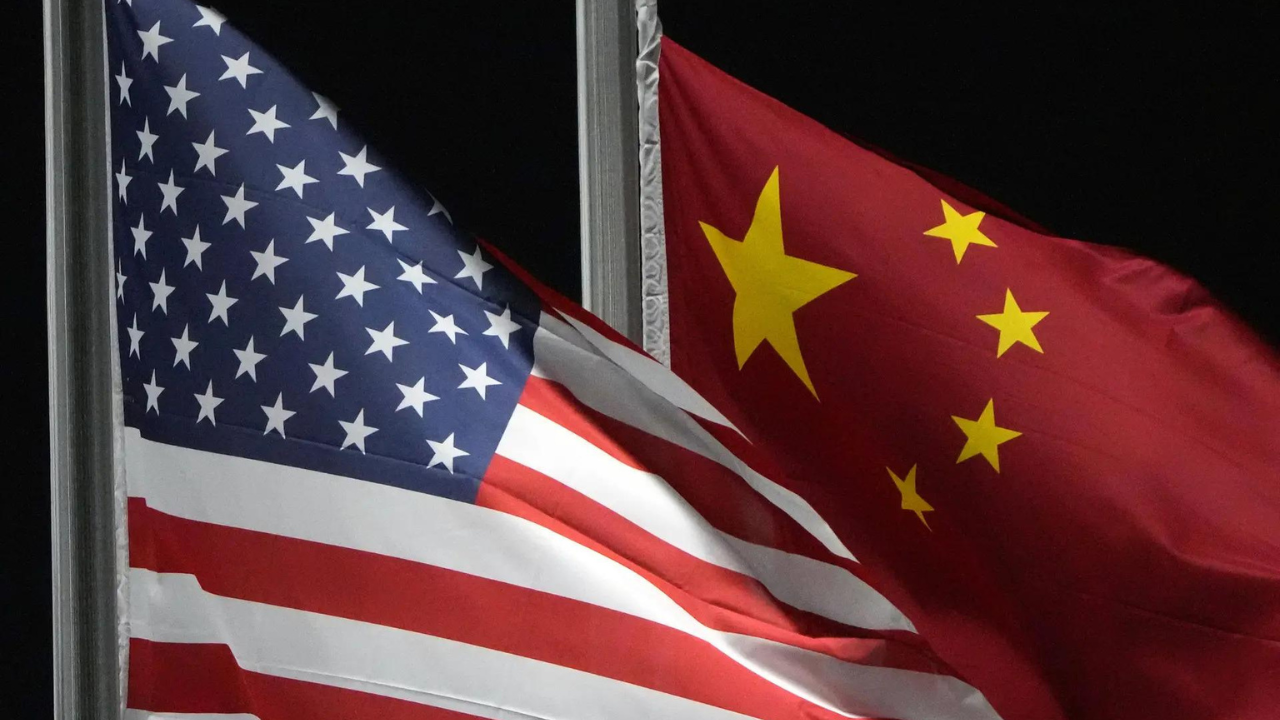China's Fiery Response to US Import Bans: A Deep Dive into Xinjiang's Controversial Commerce
Get ready to be shocked! The US has just slapped import bans on dozens of Chinese companies, igniting a fiery diplomatic clash and leaving the global economy reeling. This isn't just another trade dispute; it's a showdown over human rights, accusations of forced labor, and the future of Xinjiang's lucrative industries. Let's delve into this explosive situation and explore the complexities behind this unprecedented move.
The US Cracks Down: Unveiling the Uyghur Forced Labor Prevention Act
The United States, citing compelling evidence of human rights abuses, has wielded its economic might, adding 37 Chinese entities to its Uyghur Forced Labor Prevention Act entity list. This brings the total number of blacklisted companies to almost 150! This dramatic expansion has sent shockwaves across global markets. The impacted companies, primarily based in Xinjiang, play significant roles in critical sectors, impacting the production of everything from minerals to textiles. Think about that - solar panels and fashion apparel might be more intertwined with this controversy than we imagined. The implications of these bans extend far beyond Xinjiang, affecting supply chains worldwide and raising serious questions about ethical sourcing and global trade.
Who are the Key Players in this Xinjiang Trade War?
Some of the most prominent companies affected include Zijin Mining Group and its subsidiaries, along with the gigantic Huafu Fashion and 25 of its related entities. These aren't small players. Their involvement signifies a huge shake-up in numerous sectors. Experts fear that these sanctions might just be the tip of the iceberg and that more Chinese companies could face similar restrictions in the coming months. The far-reaching consequences extend across diverse global markets that rely on Xinjiang's goods and resources.
China's Retaliation: A Fiery Defense of Xinjiang's Industries
China's response has been swift and fiery. Government officials have vehemently denied all accusations of forced labor, dismissing them as "groundless" and "malicious" attacks aimed at harming China's economic interests. China's Foreign Ministry spokesperson, Guo Jiakun, labeled the US actions as an attempt to meddle in China's internal affairs and suppress its economic growth. This isn't just a trade dispute – it's a major clash of geopolitical narratives.
Economic Warfare: Beyond Trade Disputes
This conflict transcends a simple trade dispute; it is a major confrontation over human rights, economic power, and the influence of Western governments on global commerce. With both superpowers flexing their economic muscle, this clash raises significant concerns about global economic stability and the potential for further escalations. Will other countries follow the US lead, or will they prioritize their economic relationships with China?
Xinjiang's Global Impact: Repercussions for Supply Chains and Ethical Sourcing
The repercussions of this escalating conflict extend far beyond China and the US. Global supply chains that rely on Xinjiang's raw materials and manufactured goods are at risk. Companies worldwide now face the urgent need to carefully review their sourcing practices and implement robust due diligence protocols. Will companies be forced to choose between profits and ethical sourcing? This clash could cause profound shifts in the global economic landscape and consumer behavior. Expect to see increased calls for greater transparency and ethical sourcing in multiple sectors and on an unprecedented scale.
The Ethical Sourcing Dilemma: How Should Companies Respond?
Companies now face an extremely delicate ethical and economic balancing act. The choice of sourcing goods from Xinjiang could expose them to criticism over human rights concerns and potential legal penalties, while avoiding it could create major disruptions to their supply chains and economic risks. This necessitates a meticulous reevaluation of ethical procurement protocols, with a focus on complete transparency and validation of sourcing chains.
Looking Ahead: The Future of US-China Relations and Global Trade
This conflict underscores the growing tension between the US and China, intensifying existing economic and geopolitical challenges. The long-term effects remain uncertain, but this trade war will undoubtedly impact global supply chains, consumer markets, and diplomatic relationships for years to come. The impact of this decision reverberates beyond the realms of trade. This new chapter in the saga will continue to reshape how corporations engage with ethical business practices. Will we see this type of conflict grow, or will diplomacy eventually prevail?
Geopolitical Implications: Beyond Economic Concerns
The actions taken in this economic conflict have broader implications beyond merely economic aspects. This action may be perceived as another indication of the intense competition and strained relationship between the two global superpowers. Whether the current state of conflict between nations will lead to greater international collaborations for a sustainable global order or an era marked by isolationism, only time will tell.
Take Away Points
- The US has imposed import bans on dozens of Chinese companies due to alleged forced labor in Xinjiang.
- China has strongly denounced the US actions, calling them baseless and an interference in its internal affairs.
- This conflict impacts global supply chains and raises ethical sourcing concerns for companies worldwide.
- The long-term consequences of this trade war are far-reaching and potentially disruptive to global economic stability.
- Expect heightened ethical sourcing scrutiny and substantial shifts in global supply chains for years to come.




